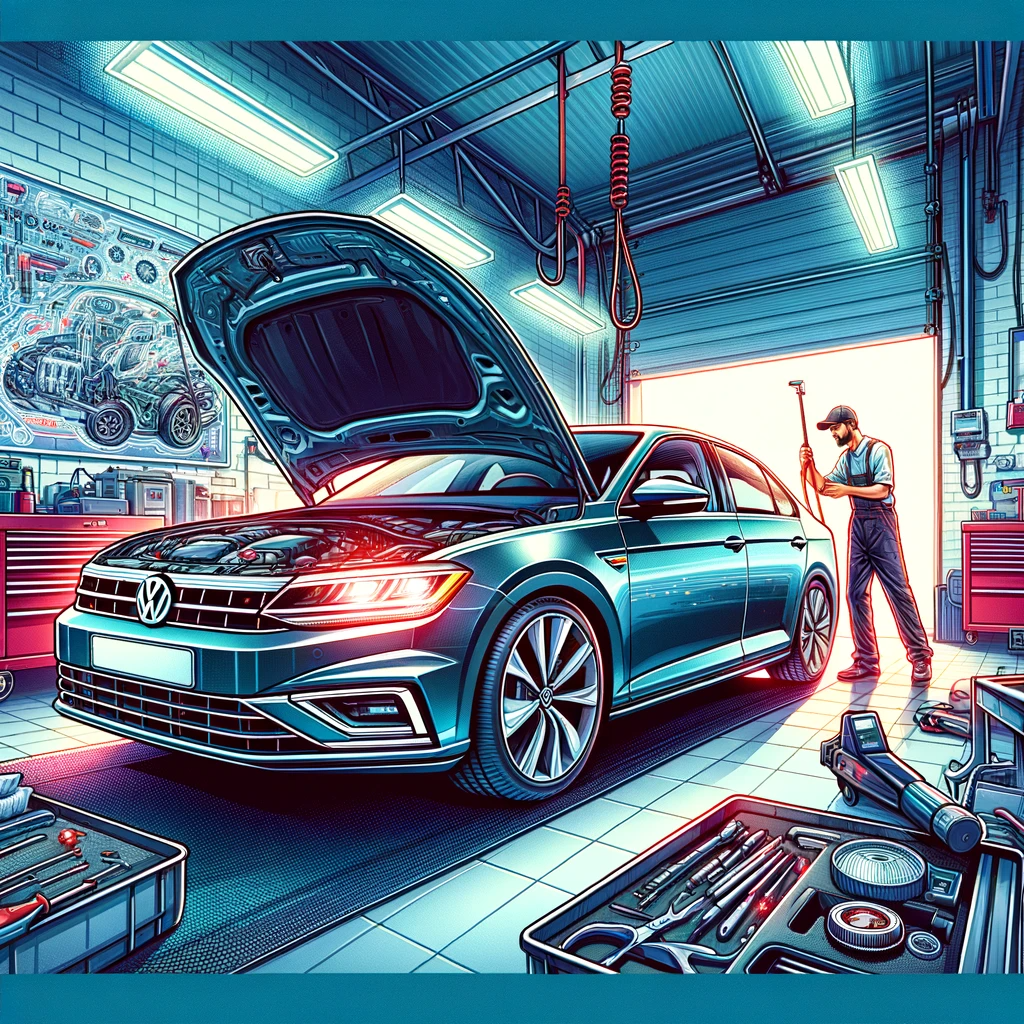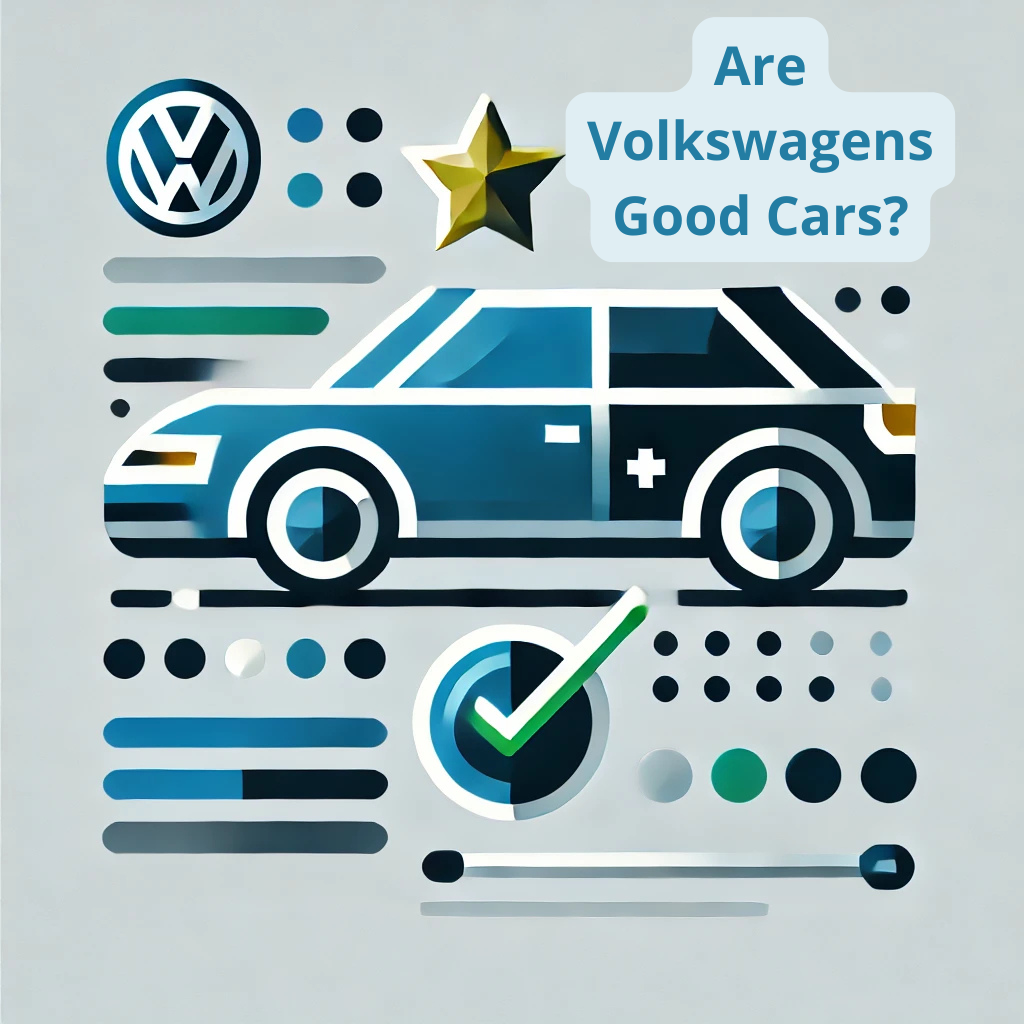Volkswagen, often affectionately referred to as “VW,” has been a staple in the automotive industry for decades. Known for their iconic designs, engineering prowess, and commitment to innovation, Volkswagen vehicles have garnered a dedicated following worldwide.
But the burning question remains: Are Volkswagens good cars? This comprehensive analysis delves into various aspects of Volkswagen vehicles, including reliability, performance, design, value for money, safety, and customer satisfaction, to help you determine if a Volkswagen is the right choice for you.
Introduction to Volkswagen
Founded in 1937 in Wolfsburg, Germany, Volkswagen was established with the mission of producing affordable, reliable vehicles for the average consumer. Over the years, Volkswagen has expanded its portfolio to include a wide range of vehicles, from compact cars and sedans to SUVs and electric vehicles (EVs). With a presence in over 150 countries, Volkswagen has become one of the world’s leading automobile manufacturers.
Volkswagen’s Reputation in the Automotive Industry
Volkswagen has built a reputation for producing cars that combine engineering excellence with distinctive design. The brand is synonymous with the Volkswagen Beetle, one of the best-selling cars of all time, and the VW Golf, a staple in the compact car segment. Despite facing challenges, such as the infamous Dieselgate scandal, Volkswagen has made significant strides in rebuilding trust and focusing on sustainable mobility solutions.
Key Milestones:
- 1958: Introduction of the Volkswagen Beetle in the United States.
- 1974: Launch of the Volkswagen Golf, revolutionizing the compact car market.
- 2015: Dieselgate scandal surfaces, impacting Volkswagen’s reputation.
- 2020s: Shift towards electric vehicles with models like the ID.4.

Reliability Ratings
When evaluating whether Volkswagen (VW) cars are good cars, reliability ratings play a crucial role. These ratings provide insights into how consistently VW vehicles perform over time and highlight common areas where issues may arise.
Two prominent sources for reliability ratings are Consumer Reports and J.D. Power. Understanding their assessments can help potential buyers make informed decisions.
Consumer Reports: Volkswagen Typically Scores Average in Reliability Surveys
Consumer Reports, a respected nonprofit organization known for its unbiased product testing and reviews, regularly evaluates vehicle reliability based on owner feedback and extensive testing. Here’s a closer look at Volkswagen’s performance in their reliability surveys:
Overall Reliability Score
Volkswagen models generally receive an average reliability score from Consumer Reports. This means that VW cars perform on par with many other mainstream brands in terms of reliability.
Category Performance
Models like the Volkswagen Golf and Jetta tend to score around the middle of the reliability range. Owners report occasional issues but generally find these cars dependable for daily use.
Vehicles such as the Tiguan and Atlas receive similar average scores. While they offer ample space and versatility, some owners experience minor reliability concerns over time.
The newer ID.4 and ID. Buzz models are still accumulating reliability data, but initial reports suggest they are holding up well, benefiting from Volkswagen’s advancements in electric vehicle technology.
Common Praise
Many owners commend VW for solid build quality and premium interiors, which contribute to a satisfying ownership experience.
VW cars are often praised for their balanced handling and engaging driving dynamics.
J.D. Power: Volkswagen Often Receives Below-Average Ratings in Dependability Studies
J.D. Power, a global marketing information services company, conducts annual Vehicle Dependability Studies that assess how often original owners experience problems with their vehicles within the first few years of ownership. Volkswagen’s performance in these studies provides another perspective on their reliability.
Dependability Score
Volkswagen typically receives below-average ratings in J.D. Power’s Dependability Studies. This places VW behind many of its competitors in terms of dependability.
Ranking Insights
VW often ranks below the industry average, indicating that more frequent repairs and issues are reported compared to other brands.
While the overall brand score is below average, certain models may perform better or worse. For instance, the Golf GTI might receive higher marks for performance but still lag in overall dependability.
Common Issues Highlighted
- Frequent reports of electrical glitches and failures can drag down dependability scores.
- Particularly with older diesel engines, issues such as turbocharger failures and emissions system problems are notable.
- Manual transmissions in some models have been prone to shifting difficulties and other related issues.
Impact on Ownership
- Below-average dependability often translates to higher maintenance and repair costs over the vehicle’s lifespan.
- Reliability issues can negatively impact a vehicle’s resale value, making VW cars less desirable in the used car market.

Common Issues
While Volkswagen offers a range of well-designed and enjoyable vehicles, certain recurring issues have been reported across different models. Understanding these common problems can help current and prospective owners take preventive measures and address concerns promptly.
Electrical Problems: Some Models Have Reported Issues with Electrical Systems
Electrical issues are among the most frequently reported problems in Volkswagen vehicles. These can range from minor inconveniences to more significant malfunctions that affect vehicle performance and safety.
| Issue | Symptoms | Impact |
|---|---|---|
| Infotainment System Failures | – Screens freezing – Unresponsive touch controls – Connectivity issues with smartphones – Glitches in navigation systems | These problems can disrupt the driving experience, making it difficult to access essential features like navigation, media, and communication tools. |
| Battery and Charging Issues | – Difficulty starting the vehicle – Intermittent power loss – Warnings about battery health | Persistent battery problems can leave drivers stranded and require costly battery replacements. |
| Sensor Malfunctions | – False warnings for systems like TPMS (Tire Pressure Monitoring System) – ABS (Anti-lock Braking System) alerts – Airbag indicators | Malfunctioning sensors can compromise safety features, potentially leading to hazardous driving conditions. |
| Wiring Problems | – Flickering lights – Malfunctioning power windows – Issues with central locking systems | Wiring issues can lead to a cascade of electrical failures, affecting multiple vehicle functions simultaneously. |
Solutions and Preventive Measures
- Ensuring that the vehicle’s software is up-to-date can mitigate many infotainment and sensor-related issues.
- Addressing electrical problems early with the help of certified Volkswagen technicians can prevent minor issues from escalating.
- Using genuine Volkswagen parts for replacements ensures better compatibility and reduces the likelihood of recurring problems.
Engine Concerns: Certain Engines, Especially Older Diesel Variants, Have Faced Reliability Challenges
Volkswagen’s diesel engines, while praised for their torque and fuel efficiency, have been a source of reliability concerns, particularly in older models. These issues have not only affected performance but also Volkswagen’s reputation in the automotive industry.
| Issue | Symptoms | Impact |
|---|---|---|
| Turbocharger Failures | – Loss of power – Increased exhaust smoke – Unusual engine noises – Reduced fuel efficiency | Turbocharger issues can lead to significant engine performance degradation and costly repairs. |
| EGR Valve Problems | – Engine knocking – Reduced performance – Increased emissions | A malfunctioning Exhaust Gas Recirculation (EGR) valve can compromise engine efficiency and compliance with emission standards. |
| DPF Blockages | – Warning lights for the Diesel Particulate Filter (DPF) – Reduced engine power – Increased fuel consumption | Blocked DPFs can lead to expensive repairs and difficulty passing emissions tests. |
| Turbocharged Engine Overheating | – Overheating indicators – Reduced engine performance – Potential engine damage | Persistent overheating can result in severe engine damage, necessitating major repairs or engine replacements. |
Solutions and Preventive Measures
- Routine checks and maintenance of diesel engines can help identify and address issues before they become critical.
- Using high-quality diesel fuel can reduce the risk of injector clogging and DPF blockages.
- Volkswagen has issued software updates to mitigate some of the engine issues related to emissions control systems.
Transmission Issues: Manual Transmissions in Some Models Have Been Noted for Shifting Problems
While Volkswagen offers both manual and automatic transmissions across its model range, manual transmissions in certain VW vehicles have been reported to experience shifting problems. These issues can affect the overall driving experience and vehicle longevity.
| Issue | Symptoms | Impact |
|---|---|---|
| Difficulty Shifting Gears | – Gears sticking – Grinding noises when shifting – Difficulty engaging certain gears | These problems can make driving cumbersome and lead to increased wear on transmission components. |
| Clutch Slippage | – The engine revs without a corresponding increase in vehicle speed, especially noticeable when accelerating | Clutch slippage can lead to reduced vehicle performance and may eventually require clutch replacement. |
| Transmission Fluid Leaks | – Puddles of fluid under the vehicle – Low transmission fluid levels – Shifting difficulties | Fluid leaks can cause severe transmission damage if not addressed promptly. |
| Electronic Transmission Control Module (TCM) Issues | – Erratic shifting patterns – Failure to shift gears – Transmission warning lights | Problems with the TCM can render the transmission inoperable, requiring expensive electronic repairs or replacements. |
Solutions and Preventive Measures
- Maintaining proper transmission fluid levels and quality can prevent many shifting problems.
- Ensuring the clutch system is well-maintained can reduce the risk of slippage and wear.
- Addressing transmission issues early with the help of experienced Volkswagen mechanics can prevent minor problems from escalating into major repairs.
- Volkswagen may provide transmission software updates to resolve certain shifting issues in newer models.
Value for Money
Assessing the value for money Volkswagen offers involves looking at pricing, features, and overall ownership costs.
Pricing
Volkswagen vehicles are competitively priced within their respective segments, offering a good balance of features and affordability.
Historically, Volkswagens tend to have average resale values compared to competitors.
Features
Many VW models come equipped with a generous list of standard features, including safety technologies and infotainment systems.
Additional packages offer enhanced features like upgraded audio systems, advanced driver assistance systems, and luxury interiors.
Ownership Costs
- Good fuel economy helps reduce ongoing costs.
- While maintenance costs are average, unexpected repairs can be a concern if reliability issues arise.
- Volkswagen offers a 4-year/50,000-mile warranty, which is competitive in the industry.
Safety Features
Safety is paramount in any vehicle assessment, and Volkswagen prioritizes this in their designs.
Standard Safety Features
- Multiple airbags, including front, side, and curtain airbags, are standard across most models.
- Electronic Stability Control (ESC) and Anti-lock Braking Systems (ABS) are standard.
- Features like forward collision warning, automatic emergency braking, and blind-spot monitoring are available, especially in newer models.
Safety Ratings
- Volkswagen models generally receive good ratings, though ratings can vary by specific model and year.
- Most VW vehicles achieve 4-star ratings overall, with specific areas scoring higher or lower.
Pros and Cons of Owning a Volkswagen
Evaluating the pros and cons can provide a clearer picture of what to expect when owning a Volkswagen.
Pros
- Volkswagen vehicles are known for their timeless and modern designs that appeal to a wide audience.
- With a range of engine options, from efficient turbocharged engines to powerful performance variants, VW cars offer a balanced driving experience.
- High-quality materials and ergonomic designs make VW interiors comfortable and pleasant for both drivers and passengers.
- Modern VWs come equipped with the latest infotainment systems, connectivity features, and safety technologies.
- The diverse lineup, from compact cars to SUVs and electric vehicles, ensures there’s a VW model for various needs and preferences.
Cons
- Some models have reported reliability issues, particularly with electrical systems and certain engines.
- Repairs and maintenance can be more expensive compared to some competitors, especially for higher-end models.
- Volkswagen vehicles generally have average resale values, which might not be as strong as some other brands.
- While many models are fuel-efficient, some larger or performance-oriented VWs may have lower fuel economy.
- Some users find VW’s infotainment systems less intuitive and user-friendly compared to competitors.
Conclusion
Volkswagens have long been recognized for their blend of style, performance, and engineering excellence. While they offer numerous advantages, including stylish design, solid performance, and advanced technology, they also face challenges such as reliability concerns and higher maintenance costs. Ultimately, whether Volkswagens are good cars depends on individual priorities and preferences.
For those who value European design, engaging driving dynamics, and a diverse range of models, Volkswagen presents a compelling option. However, potential buyers should consider the specific model’s reliability ratings, maintenance costs, and overall value to ensure it aligns with their needs and expectations.
As Volkswagen continues to innovate and transition towards electric mobility, the brand remains a significant player in the automotive industry, promising exciting developments for the future.
